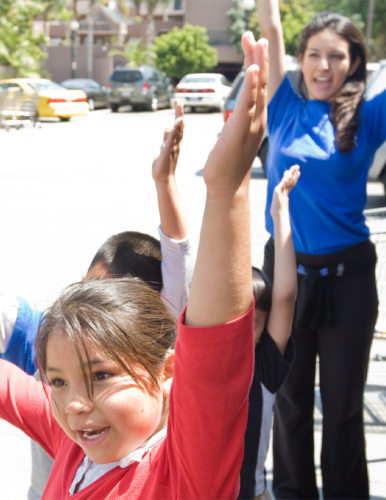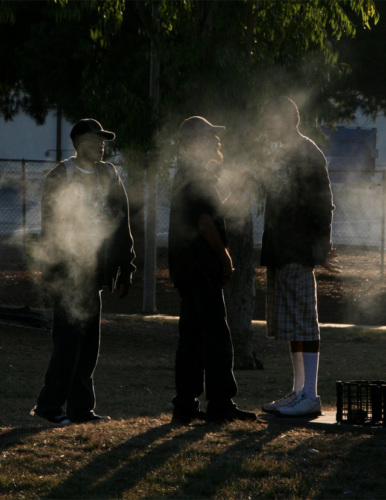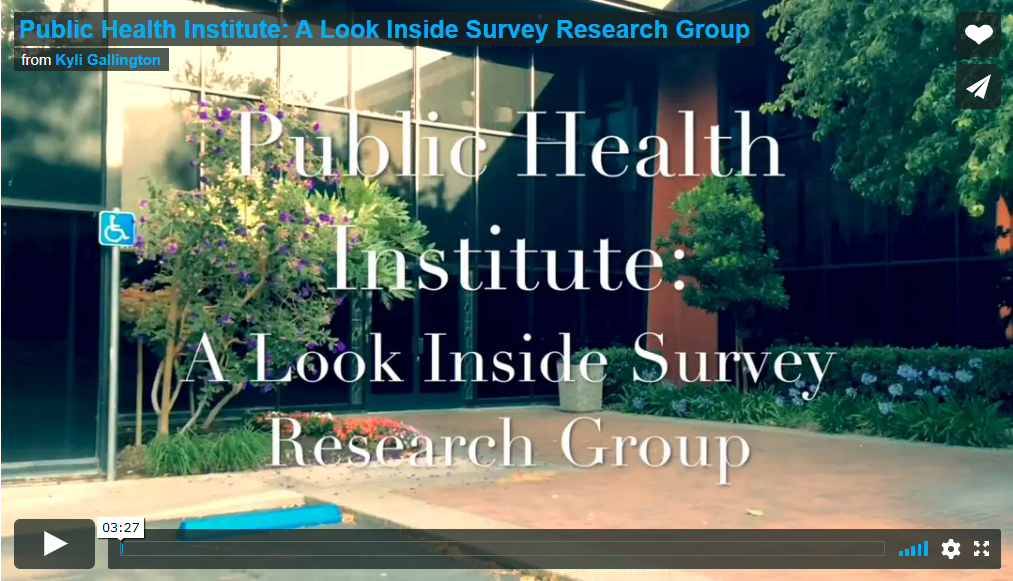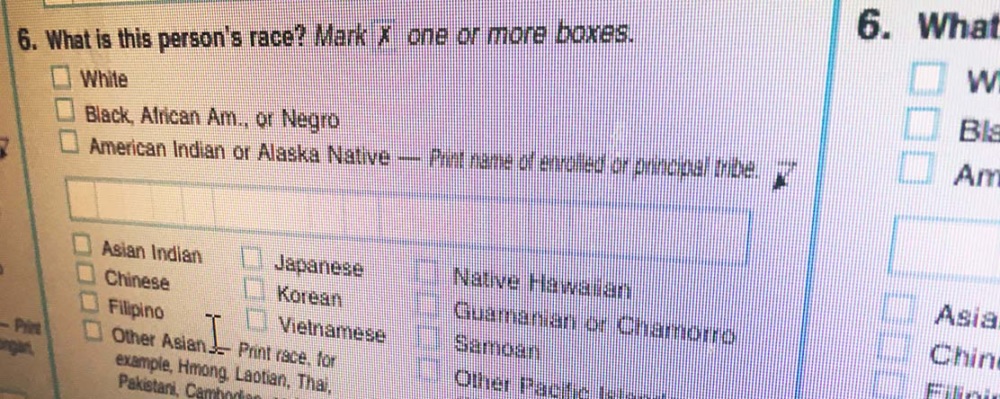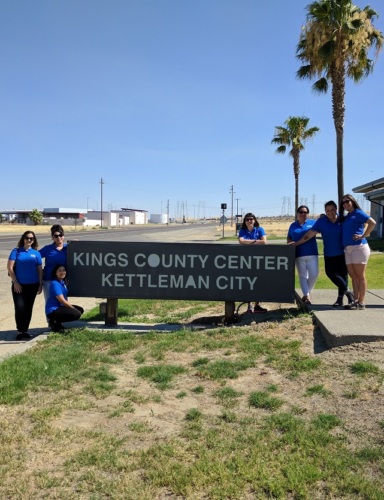
Survey Research Group
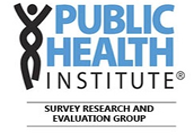
Survey Research Group’s mission is to foster health, well-being, and quality of life through rigorous quantitative and qualitative research guided by the principles of equity in health, environment, education, and economic contexts. To achieve this mission, SRG conducts research on a local to global level in partnership with communities.
Our Impact
See all Survey Research Group Impacts
- 500K telephone health surveys conducted with adults & adolescents in English, Spanish, Chinese, and Vietnamese since 1987
- 9 PHI programs supported by SRG's expertise in research & evaluation
- 20+ unique studies that identified opportunities to improve health using diverse methodologies like in-depth interviews, focus groups, environmental scans & surveys

Projects
Completed Projects
- Kettleman City Community Canvass
-
PHI SRG’s Dr. Ryan-Ibarra and Dr. Marta Induni led the Kettleman City Community Health Canvass in 2017. This work used a strengths-based approach to gather data about the needs of Kettleman City residents that could be addressed by Kings County’s Public Health Department. This project included designing survey instruments, conducting in-person interviews in English and Spanish with residents in Kettleman City, and sharing the results of the research back with community members.
- Core Metrics Pilot Project
-
Dr. Ryan-Ibarra was the lead epidemiologist for the Core Metrics Pilot Project. This project was funded by the Blue Shield Foundation of California to test using a set of 16 standard health indicators in two California counties: Fresno County and Monterey County. The culmination of this work were two interactive dashboards, one for each county, in English and Spanish that local health departments used to plan programs and community residents used to conduct education and advocacy.
- California Health Accountable for Health Initiative Accelerator Site Evaluation
-
Survey Research Group conducted a program evaluation for the the California Accountable Communities for Health Initiative (CACHI) Accelerator ACH sites. The evaluation measured sites' capacity and progress on the 7 elements for CACHI. The results of the evaluation will inform future ACH efforts in California and nationwide.
- California Health Interview Survey - Questionnaire Development
-
Survey Research Group provides questionnaire development support for the California Health Interview Survey, conducted by the University of California, Los Angeles. SRG provides assistance with question development, convenes workgroups, conducts pretesting and usability testing, and oversees English language simplification and question translations in five language.
- Multi-purpose Prevention Technologies Target Population Identification Mapping Tool
-
The objective of this ArcGIS mapping tool is to identify and characterize priority sub-national areas in sub-Saharan Africa with a likelihood of successful and impactful uptake of multi-purpose prevention technologies that provide contraception and prevention from HIV. Data from Demographic Health Survey and AIDS Indicator Survey were mapped for eleven countries in sub-Saharan Africa. This project is conducted as a collaboration between PHI's CAMI Health and Survey Research Group.
- Phoenix Study Computer Assisted In-Person Interviewing Software
-
Survey Research Group provides data collection support for in-person data collection on tablets for the Phoenix Study, a longitudinal study conducted by PHI's Health Interventions for Underserved Populations (HIPUP). HIPUP aims to improve substance abuse and HIV/AIDS prevention and treatment research and services for underserved populations, such as transgender persons, Asian and Pacific Islander men who have sex with men (MSM) and substance users.
- Napa County Emergency Food System Study
-
Dr. Ryan-Ibarra and her team conducted the Napa County Emergency Food System Study for Napa County’s Public Health Department in 2018. The team designed instruments, oversaw survey data collection, conducted focus groups, analyzed data, prepared a comprehensive report, and built an interactive dashboard. This project focused on three priority populations, including Spanish-speakers and individuals experiencing homelessness.
- Enhancing the Evidence Base for SNAP-Ed
-
The purpose of this project is to conduct a comprehensive evaluation of five SNAP-Ed interventions in Michigan. The results of such as evaluation can be used to expand these successful programs and recognize the innovative work that the Michigan Fitness Foundation, as a non-profit organization, is leading. This project is conducted as a collaboration between PHI's Center for Wellness and Nutrition and Survey Research Group.
- Promoting Active Communities Program Evaluation
-
The purpose of this project is to conduct a process evaluation for the Promoting Active Communities (PAC) assessment tool, designed by the Michigan Fitness Foundation to help communities better understand barriers to active living and solutions to overcome those barriers. The results can be used to scale the PAC for use throughout Michigan and the country. This project is conducted as a collaboration between PHI's Center for Wellness and Nutrition and Survey Research Group.
Work With Us
You change the world. We do the rest. Explore fiscal sponsorship at PHI.
Support Us
Together, we can accelerate our response to public health’s most critical issues.
Find Employment
Begin your career at the Public Health Institute.


